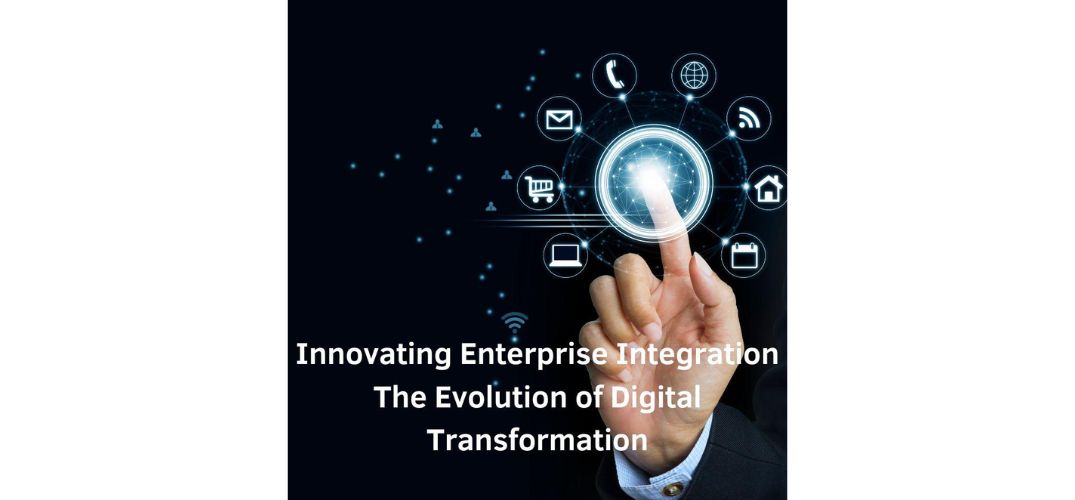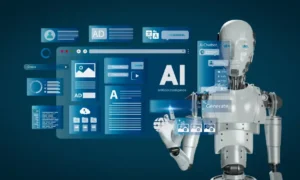In the age of modern digital transformation, enterprise integration has undergone a transformative shift, redefining how organizations manage data, streamline processes, and enhance security. In his research, Prahlad Reddy Devireddy explores the technical advancements in enterprise integration architecture and their implications for digital transformation. His insights shed light on the innovations driving efficiency and scalability in modern businesses.
A New Era of Enterprise Computing
Enterprise integration has entered a new era driven by cloud-native principles and advanced automation. Real-time processing, AI-driven insights, and in-memory computing are transforming traditional architectures, enhancing efficiency and agility. Organizations adopting these innovations experience lower operational costs and improved system performance, enabling seamless data access and faster decision-making.
By leveraging intelligent automation and scalable cloud frameworks, businesses can optimize workflows, enhance interoperability, and drive digital transformation, ensuring they remain competitive in an increasingly data-driven landscape.
Revolutionizing Data Management
Modern enterprise integration is transforming data management by emphasizing real-time accessibility and consistency. The adoption of in-memory computing significantly boosts database efficiency, minimizing redundancy and optimizing storage. Organizations leveraging intelligent data validation frameworks benefit from reduced errors and seamless synchronization across distributed systems.
This approach enhances data accuracy, ensuring that businesses can make informed decisions with confidence. By streamlining data flow and reducing inconsistencies, enterprises improve operational agility, enabling faster responses to dynamic market demands. As a result, organizations achieve greater efficiency, reliability, and scalability in their data-driven strategies.
Seamless Integration Frameworks
Modern enterprise integration frameworks prioritize pre-built APIs, standardized interfaces, and automated workflows to enhance connectivity. Event-driven architectures facilitate real-time data processing, enabling businesses to handle high transaction volumes with minimal latency. By leveraging structured integration methodologies, organizations streamline implementation, reducing deployment time and complexity.
These frameworks ensure seamless interoperability across diverse systems while maintaining data consistency and system resilience. Additionally, automation minimizes manual intervention, reducing errors and improving operational efficiency. Scalable and flexible integration models allow enterprises to adapt to evolving business needs without extensive reconfiguration. As a result, companies achieve faster time-to-market, enhanced performance, and improved customer experiences. The convergence of these technologies drives digital transformation, making enterprise systems more agile, responsive, and future-ready.
Security and Compliance in Multi-Cloud Environments
With enterprises transitioning to multi-cloud architectures, security frameworks have evolved to incorporate zero-trust models and automated threat detection. The implementation of adaptive authentication mechanisms and end-to-end encryption enhances data protection. Organizations report a significant decrease in security incidents due to real-time monitoring and AI-driven risk assessments.
Enhancing Business Process Automation
Process orchestration has shifted towards AI-enhanced automation, enabling businesses to optimize workflows dynamically. Intelligent analytics and predictive monitoring improve exception handling and process execution efficiency. Organizations leveraging these capabilities experience faster decision cycles and increased adaptability to market changes.
Scalability Through Distributed Architectures
A microservices-based architecture enhances scalability and performance in enterprise integration. By leveraging predictive resource allocation, businesses optimize costs while sustaining peak efficiency. Distributed computing enables seamless workload distribution, allowing enterprises to process millions of concurrent transactions effectively, ensuring reliability, responsiveness, and operational agility in dynamic digital environments.
AI and Machine Learning in Enterprise Systems
AI and machine learning enhance enterprise systems by driving analytics, automation, and predictive insights. Organizations leverage AI-driven models to optimize maintenance, detect anomalies, and refine decision-making, leading to improved efficiency. As integration advances, businesses achieve higher productivity with minimal human intervention, streamlining operations and reducing downtime.
AI-powered automation not only enhances operational accuracy but also fosters proactive management, ensuring enterprises stay competitive in dynamic markets while optimizing resource utilization and improving overall performance.
The Future of Enterprise Integration
Emerging technologies such as edge computing and quantum computing are set to redefine enterprise integration. Organizations adopting these advancements anticipate exponential improvements in data processing speeds and security frameworks. As digital transformation accelerates, the continuous evolution of enterprise integration remains pivotal to business resilience and innovation.
In conclusion, Prahlad Reddy Devireddy’s research underscores the continuous advancements in enterprise integration, highlighting the imperative for organizations to adopt innovative strategies. As businesses navigate the complexities of digital ecosystems, leveraging these cutting-edge technologies is essential for sustaining growth and maintaining a competitive edge in an increasingly interconnected world.



































